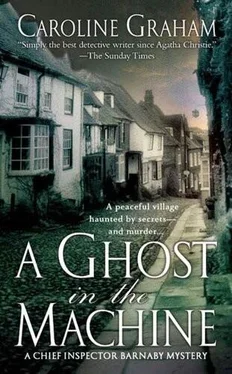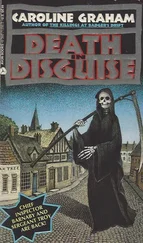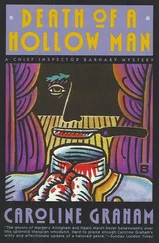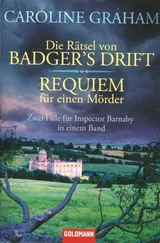Cully and Nicolas remained silent, carefully avoiding each other’s gaze. The Almeida, one of London’s most exciting theatrical companies, was presently performing at an old bus depot at King’s Cross. Before then it was in the shell of the Gainsborough film studios. Soon they would be back at their real home in Islington. A movable feast.
“I sensed there was something.” Cully smiled warmly, linking herself and Ava in starry complicity. “You can always tell.”
“I’m afraid I didn’t quite…?”
“Cully. Cully Barnaby. And this is my husband, Nicolas.”
“I’m an actor too,” cried Nicolas, thinking to build on the goodwill so suddenly and surprisingly present.
“I don’t know if you know the play,” said Cully, “but Madame Arcati—”
“Aaah, poor Margaret Rutherford. She used to come to me with all her troubles.”
“I do like to research my character. And you are plainly outstanding in your field.”
“Say no more.” Ava waved at the chaise longue. “Please, make yourselves comfortable.”
Nicolas and Cully sat down on what felt like thistle stuffing. Cully did not care. She had got what she wanted. Nico wondered if it would be safe to take notes, risked asking and was given permission.
Then Ava leaned forward with a gesture of confiding grace. The wise sibyl about to reveal the secrets of the universe. The storyteller with a million legends up her sleeve. Once upon a time, in the little market town of Causton…
Ava Bunton had always wanted to be somebody. As a child she thought of being a dancer or a singer and danced and sang at home while constantly pleading for lessons. Eventually, driven half mad by this theatrical posturing, her father boxed her ears and threatened to tie her ankles together. And, when she cried, started unravelling the Sellotape. That soon shut her up.
But the dreams continued. She did errands and delivered papers to buy tap and ballet shoes and pay her subscription to Causton Amateur Society’s Junior Club. Every Saturday morning she improvised becoming a tree or a kettle or a hedgehog. She exercised her voice, did pliés at the barre and acted her little socks off. She was in all the pantomimes to which no one in the family came, not even when she played the cat in Dick Whittington.
In her last term at school she ran away to London, got a room through a flatshare agency and started office temping to keep herself and pay for more tuition and glamour photographs. She grabbed The Stage the second it was on the newsstand, went to any open auditions, tried to get an agent. Ava was never defeated. A fatal mixture of rock-hard confidence and a blinding lack of intelligence protected her from the unhappy understanding that she was completely untalented. Not even good enough to be called mediocre.
Eventually she got a job dancing on a second-rate cruise liner and spent the next seven years more or less afloat, occasionally winging it in nightclubs in Turkey and Beirut. It was in Lebanon that she met Lionel Wainwright Garret, a once-handsome ex-public schoolboy, now living seedily on what little he could earn giving English lessons. Impressed by his accent and thrilled with the idea of going up in the world, Ava moved in with Garret, parting with nearly all her savings in the process. For a short while he took some sort of interest in her – enough to make her pregnant at any rate – before reverting to his previous passion for young boys. Ava returned to England, sadder though no wiser, for she was the sort of person who blamed her troubles on everyone but herself. But then, something wonderful happened.
Ava was not looking forward to having a baby. She was in her late thirties and, had she not returned from the Far East too late for a National Health Service abortion, would certainly never have had the child. And that would have been a real mistake because, not too long after the baby was born, Ava became aware of a strange new presence, an intelligence at work which she had not experienced before. She put this down to some mysterious genetic intermingling between herself and Lionel Garret. What else could it be?
However, the assurance which had seen her through so many years of rejection and sordid show business wrangles unaccountably absented itself when the question of how to make the best use of this new opportunity arose. It was so strange, for a start, so outside all her previous experience. In fact, it was quite a long time before she worked out how best to handle things. Bringing up the little girl took a great deal of her time, and struggling to make ends meet took a hefty chunk out of what was left. But eventually a way, an opening, presented itself almost out of the blue. And what an appropriate phrase that was, Ava had thought, even back then.
At the time she had joined a friendship club for the divorced and separated, passing herself off as a widow. Refusing to admit to loneliness, she referred to this move only as extending her circle of friends. But her devoted self-interest made friendship impossible and she was on the point of abandoning these meetings, where everyone talked endlessly about themselves, when she met George Footscray.
George, a middle-aged man living with his mother and into one or two deeply unadventurous hobbies, showed the keenest interest when she told him about the messages from other realms that were now transmitting almost daily. He said excitedly they should be shared with the world and described her as a born medium. Another Doris Stokes. Ava had never heard of Doris Stokes and was somewhat uneasy with the word “share,” but her longing to be someone burned as strongly as ever. If anything, years of disappointment had fanned the flame to an even fiercer strength.
George explained that she would not necessarily have to be a platform medium. There were those who did only private sittings or group seances. But Ava loved the idea of rows and rows of faces looking longingly up at her, hanging on her every word. And in respectful silence too, not laughing and drinking or making obscene gestures and rude jokes as they had in nightclubs and aboard ship.
She was not so keen on George’s suggestion that a certain amount of training was important. That, for example, she must learn how to prepare before working from the platform. How to handle a congregation. What to do when a spirit manifested only to be met with indifference or blank incomprehension. Never mind how to cover when no one came through at all. Ava assured George that would never happen as her connection was absolutely genuine. And anyway, she’d practically been born on a stage. Improvise was her middle name. It was not until she realised that without a certain degree of training she would not be allowed to tread the boards at all that she grudgingly gave way.
George took her to several church meetings to illustrate the way of things and one or two established mediums kindly attempted to take her under their wings. Ava listened. She gritted her teeth at what she saw as patronising condescension but she listened. Her confidence disturbed them. She seemed to have no nerves at all.
From the very beginning, like an old-style travelling magician, Ava was always supported by an assistant, her daughter, Karen. She would carry Ava’s long black velvet cloak, set up her mirror and cosmetic tray, check that everything on the platform was in its correct place, brew her special herbal tea. She had also, in the early days, presented Ava with a bouquet “from a grateful client” at the conclusion of each meeting; flowers which Ava herself had purchased earlier. However, this was abandoned after complaints from other psychics that a precedent was being set. A precedent that not everyone could afford.
From the first all went well. The voices never let her down and Ava revelled in the attention; in the silent waves of intense longing that poured over what she still thought of as the footlights the moment she began to speak; the gratitude of the gathering afterwards, thanking her, shaking her hand, telling her she was marvellous. That she had changed their lives; brought sunshine out of sorrow. All very nice.
Читать дальше










